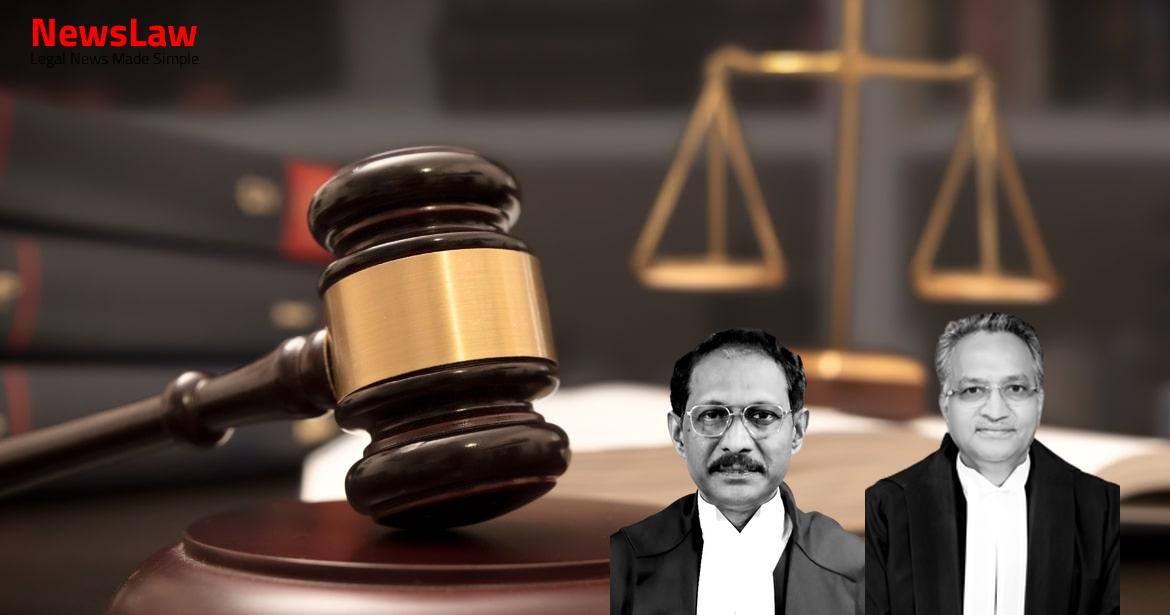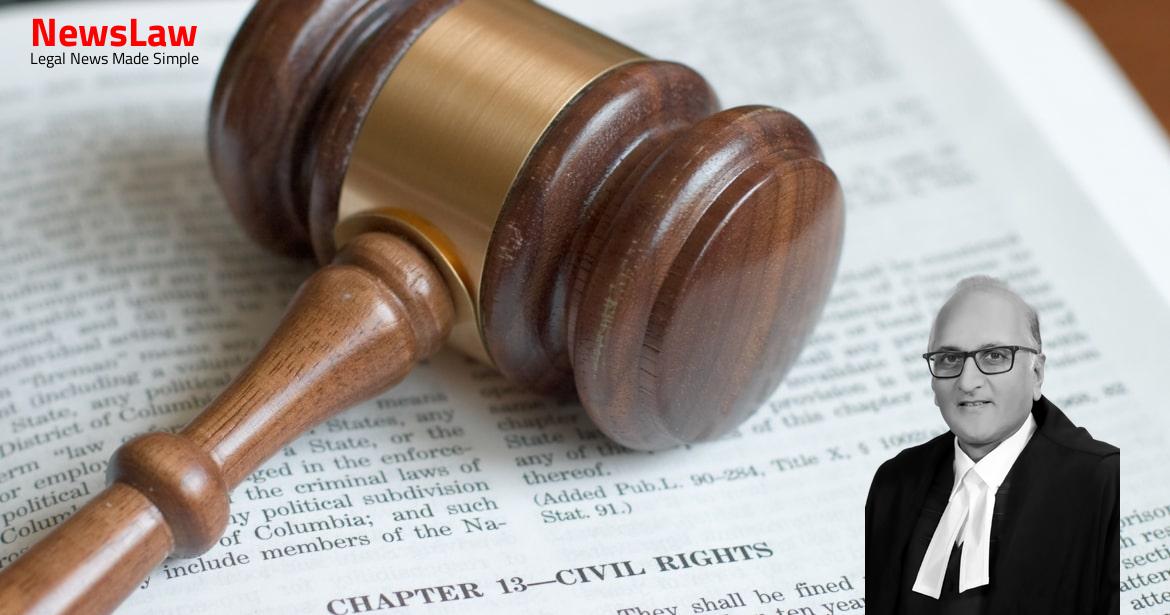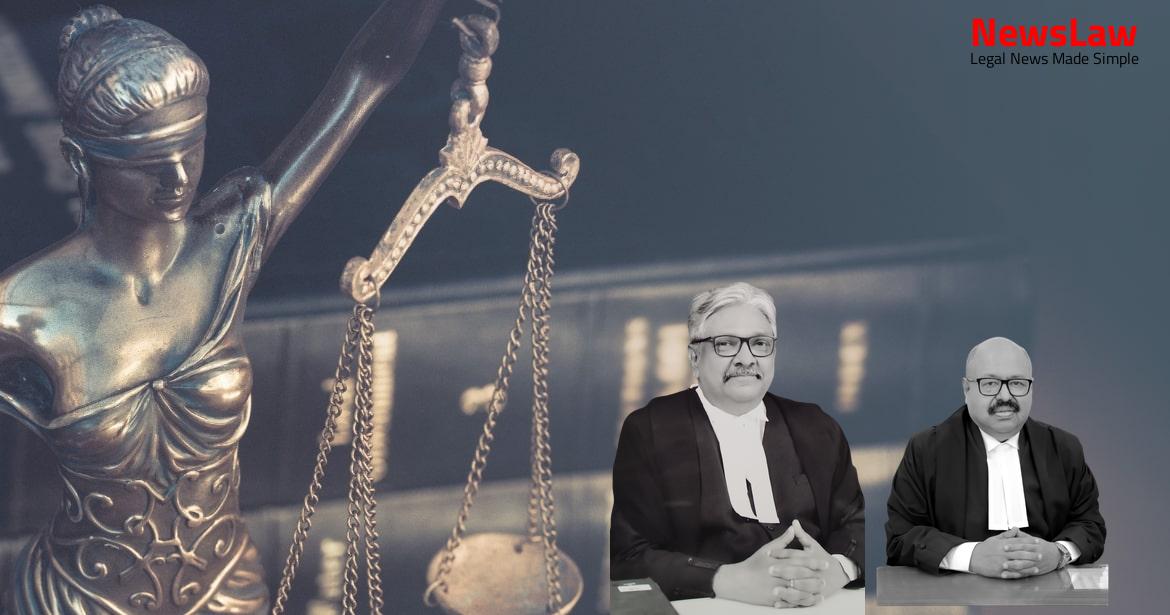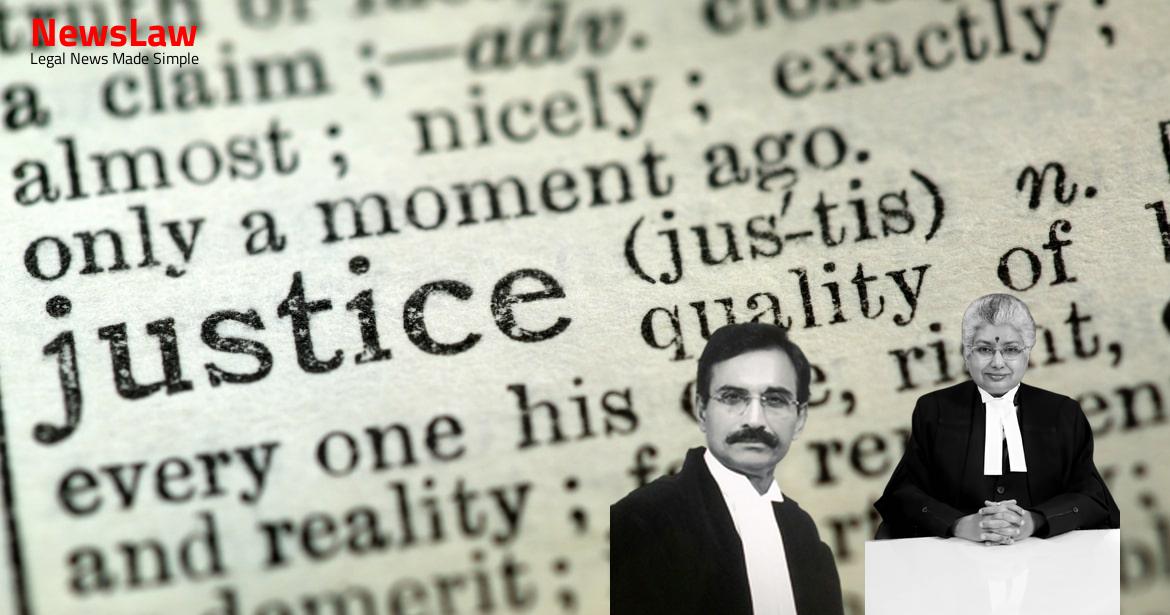The High Court’s analysis on the jurisdiction of the Divisional Commissioner in appeals under the Maharashtra Village Panchayats Act has significant implications for cases concerning the disqualification of Panchayat members. The decision clarifies the limits of authority and appeal options available in such matters, establishing a framework for future legal proceedings in similar cases.
Facts
- Respondent No 2 filed two Dispute Applications seeking declaration under Section 14B(1) that the appellants stood disqualified for not submitting election expenses on time.
- The Collector rejected both Dispute Applications on 5.2.2019 citing lack of merits after considering relevant material and submissions of the parties.
- Divisional Commissioner allowed both appeals by separate judgment on 15.7.2019.
- Appellants filed writ petitions before the High Court of Judicature at Bombay Bench at Aurangabad.
- High Court dismissed the writ petitions and affirmed the disqualification order against the appellants.
- Principal challenge was on the jurisdiction of the Divisional Commissioner to entertain the appeals.
- Remedy provided after Collector’s decision is limited to removing the disqualification or reducing the period.
- No further appeal provided if Collector rejects the disqualification application.
- High Court opined that aggrieved applicants could appeal under Section 14B(2) before the Divisional Commissioner.
Also Read: Land Acquisition Act Interpretation Case
Issue
- Core issue: Can an appeal be filed before the Divisional Commissioner against an order of the Collector under Section 14B(1) of the Maharashtra Village Panchayats Act, 1959?
- Specifically, can such an appeal be filed when the Collector declines to disqualify a Sarpanch/Member of the Panchayat for allegedly failing to lodge an account of election expenses within the prescribed time and manner by the State Election Commission without providing any valid reason for the failure?
- The appellants participated in the elections held in September 2018.
Also Read: Authority of CMM/DM to Appoint Advocate in Secured Asset Cases
Arguments
- Sudhanshu S. Choudhari, counsel for the appellants, and Nishant R. Katneshwarkar, counsel for respondent No. 2, reiterated their arguments presented in the High Court.
- The provision for disqualifying a member of a Panchayat and the conditions to continue as a member were discussed.
- The parties’ positions before the High Court were restated during the proceedings.
Also Read: Analysis of Compensation Method in Land Acquisition Case
Analysis
- The High Court made an analogy to the remedy of appeal against the order of the Collector under Section 16(2) before the Divisional Commissioner under the same section.
- The High Court referenced the case of Suchita Murlidhar Kewati (Sarpanch) & Ors. vs State of Maharashtra & Ors. to support their conclusion.
- The objection regarding the jurisdiction of the Divisional Commissioner to entertain the appeal(s) was rejected by the High Court.
- The High Court supported the decision of the Divisional Commissioner to reverse the decision of the Collector on merits.
- State Election Commission has the power to remove disqualifications or reduce the period thereof.
- A person disqualified by the State Election Commission under Section 14B of the Act cannot be a member of a Panchayat or continue as such.
- An appeal can be made to the State Government within fifteen days from the date of the Collector’s decision, and the State Government’s orders in such appeal are final.
- The State Election Commission can delegate its powers under Section 14B to certain officers.
- Section 14B enables the State Election Commission to disqualify a person for failing to lodge an account of election expenses within the required time and manner.
- The State Election Commission can declare a person disqualified for a period of five years if they fail to comply with election expense reporting requirements.
- The Collector has to decide on questions of vacancy within sixty days from the date of receipt of such application.
- State Election Commission can remove disqualification or reduce the period of disqualification for reasons to be recorded.
- Powers under Section 14(B)(2) vested in Divisional Commissioners.
- Option to challenge order under Article 226 of the Constitution of India.
- Member’s status not affected until Collector’s decision on disqualification.
- No appeal against rejection of application for disqualification.
- Authority rejecting disqualification proposal cannot review its own decision.
- Divisional Commissioner cannot impose disqualification based on Section 21 of the General Clauses Act, 1897.
- No appeal available against State Election Commission’s decision on disqualification.
- Limited scope for appeal against Collector’s decision under Section 16(2).
- No appeal provided against rejection of disqualification under Section 14B(1).
- State Election Commission’s powers delegated to Collector under Section 14B(1) and Divisional Commissioner under Section 14B(2).
- State Government officials mandated to act independently.
- Divisional Commissioner’s jurisdiction limited to matters under Section 14B(2).
- No provision for appeal against Collector’s decision on disqualification.
- Effectiveness of Collector’s order on disqualification final and non-appealable.
- State Election Commission’s power operates in distinct silos under Section 14B(1) and (2).
- Procedure outlined for filling vacancies due to disqualification.
- State Election Commission’s decision on disqualification not subject to internal appeal.
- Provisions of Section 16 related to member’s disability and vacancy filling due to disqualification.
- Challenge under Section 14B(1) cannot be appealed before the same authority.
- Casus Omissus argument rejected.
- No remedy of appeal is envisaged against an order of the State Election Commission or its delegatee – the Collector, under Section 14B(1) rejecting the complaint or to drop the proceedings for declaration of a Sarpanch/Member having incurred disqualification.
- The order becomes final and if passed by the Collector as the delegatee, is deemed to have been passed by the State Election Commission itself.
- Even the State Election Commission cannot step in thereafter in any manner much less in the guise of reconsideration or review of such order.
- The Divisional Commissioner would have no jurisdiction ab initio to entertain an appeal against such an order of the Collector.
- The High Court wrongly entertained appeals against the Collector’s orders, which were non-est in law due to lack of jurisdiction of the Divisional Commissioner.
- The processes under Section 14B(1) and Section 16 are distinct, with the former dealing with disqualification and the latter with the ascertainment of vacancy.
- Since the Divisional Commissioner had no jurisdiction to entertain the appeal, no other issue needed examination by the High Court at his instance.
- It was concluded that the correctness of the decision of the Collector on merits in rejecting the Dispute Applications filed by respondent No. 2 need not be reviewed, as the appeals were dismissed due to lack of jurisdiction.
- If the Collector rejects the complaint and drops the proceedings in favor of the concerned Sarpanch/Member, there would be no question of any vacancy arising.
Decision
- The High Court’s opinion in the impugned judgment is not acceptable.
- The appeals succeed and the impugned judgment is set aside.
- The separate orders by the Divisional Commissioner dated 15.7.2019 are also set aside.
- The writ petitions filed by the appellants are allowed.
- This results in restoring the separate orders passed by the Collector dated 5.2.2019, rejecting the Dispute Application(s) filed by the respondent No. 2.
Case Title: SHOBHABAI NARAYAN SHINDE Vs. THE DIVISIONAL COMMISSIONER (2022 INSC 9)
Case Number: C.A. No.-000055-000055 / 2022



